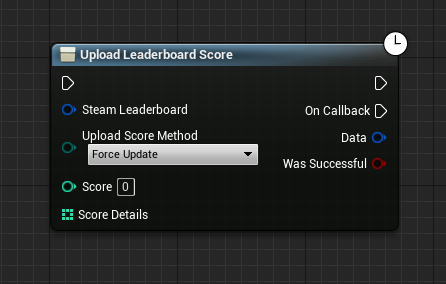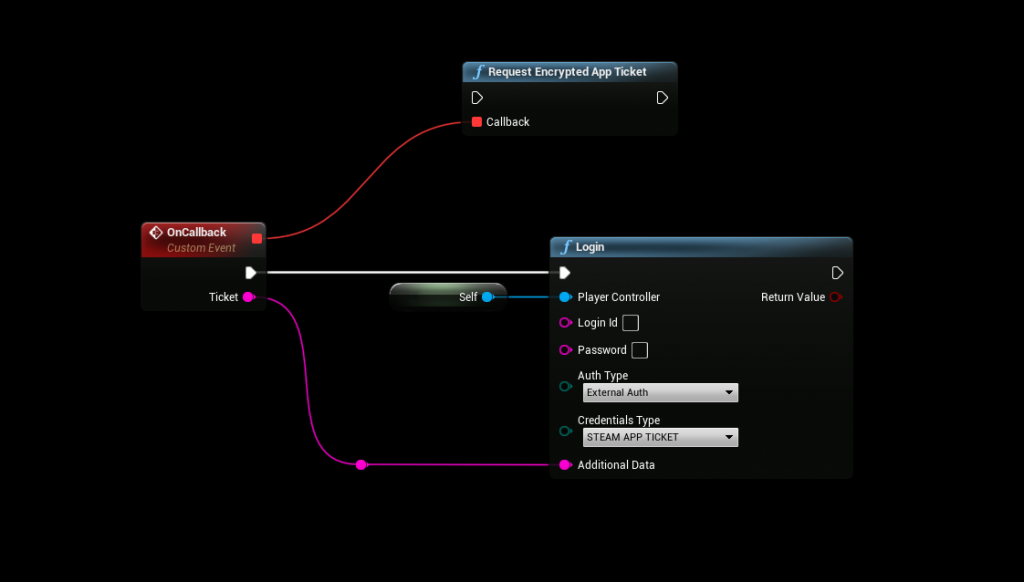RemoteStorage
- New function: UGCDownload
- New function: UGCDownloadToLocation
- New function: UGCRead
Unfortunately, the new nodes that exists in the Steamworks SDK does not have any documentation or information about their usage and therefor their intended functionality remains untested and may not function as expected as there is no official information available.
Leaderboards
- UploadLeaderboardScore parameter “ScoreDetails” no longer requires you to give it an array, it can be left empty if not used.



